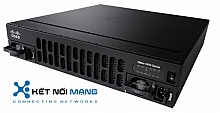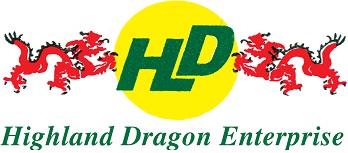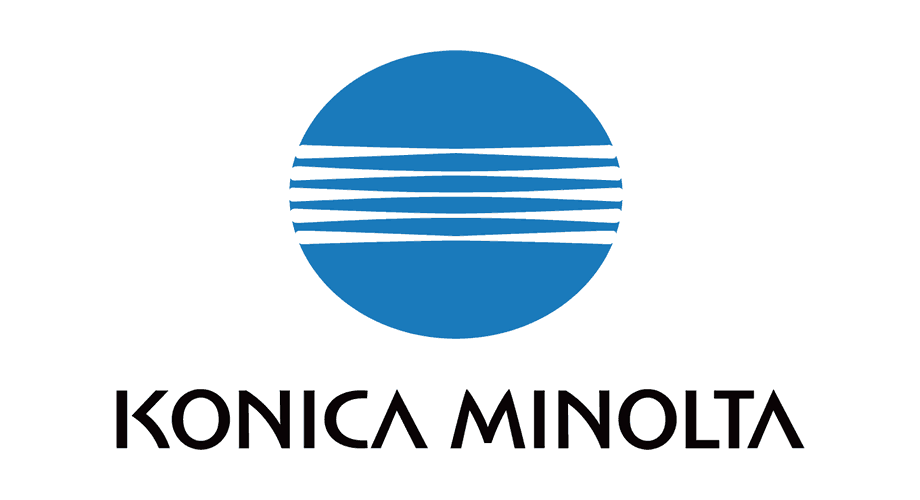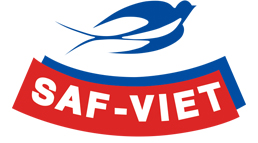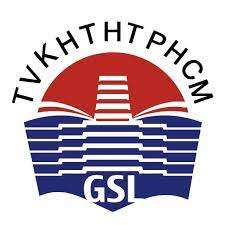Cisco Meraki MS120-8 Switch
Cisco Meraki MS120-48FP Switch
Cisco Meraki MS125-48FP Switch
Cisco Meraki MS125-24 Switch
Cisco Meraki MS120-48LP Switch
Cisco Meraki MS125-48 Switch
Cisco Meraki MS120-8LP Switch
Cisco Meraki MS125-24P Switch
Cisco Meraki MS125-48LP Switch

Thiết bị định tuyến Cisco ISR4221/K9 Integrated Services Router
P/N: ISR4221/K9ISR 4221 with 2 onboard GE, 2 NIM slots, 1 ISC slot, 8 GB Flash Memory default, 4 GB DRAM default
Liên hệ ngay
Cisco® 4000 Series Integrated Services Routers (ISRs) form an intelligent WAN platform that delivers the performance, security, and convergence capabilities that today’s branch offices need.
Product Overview
The Cisco 4000 Series Integrated Services Routers (ISR) revolutionize WAN communications in the enterprise branch. With new levels of built-in intelligent network capabilities and convergence, the routers specifically address the growing need for application-aware networking in distributed enterprise sites. These locations tend to have lean IT resources. But they often also have a growing need for direct communication with both private data centers and public clouds across diverse links, including Multiprotocol Label Switching (MPLS) VPNs and the Internet.
The Cisco 4000 Series contains six platforms: the 4451, 4431, 4351, 4331, 4321 and 4221 ISRs

Features and Benefits
Cisco 4000 Series ISRs provide you with Cisco Intelligent WAN (IWAN) software features and a converged branch infrastructure. Along with superior throughput, these capabilities form the building blocks of next-generation branch-office WAN solutions.
Cisco Intelligent WAN (IWAN)
Cisco IWAN is a set of intelligent software services that allow you to reliably and securely connect users, devices, and branch office locations across a diverse set of WAN transport links. IWAN-enabled routers like the 4000 Series dynamically route traffic across the “best” link based on up-to-the-minute application and network conditions for great application experiences. You get tight control over application performance, bandwidth usage, data privacy, and availability of your WAN links—control that you need as your branches conduct greater volumes of mission-critical business.
Cisco Converged Branch Infrastructure
The Cisco 4000 Series ISRs consolidate many must-have IT functions, including network, compute, and storage resources. The high-performance, integrated routers run multiple concurrent IWAN services, including encryption, traffic management, and WAN optimization, without slowing your data throughput. And you can activate new services on demand through a simple licensing change.
|
Business Requirement(s) |
Feature/Solution |
|
Performance |
|
|
Lower WAN expenditures |
|
|
Pay-as-you-grow |
|
|
Superior and secure user application experiences |
|
|
IT consolidation, space savings, and improved total cost of ownership (TCO) |
|
|
Business continuity and increased resiliency |
for backup. The entire 4000Series supports optional power supply capable of delivering additional PoE power to endpoints. Defined models provide for a DC power supply. |
|
Lower telephony costs with VoIP and rich media experiences |
|
|
Easier manageability and support |
|
Platform Architecture
The routers run modular Cisco IOS® XE Software, widely deployed in the world’s most demanding networks. The software’s comprehensive portfolio of services spans multiple technology areas, including security, WAN optimization, app and network quality of service (QoS), and embedded management.
|
Architectural Features |
Benefits/Description |
|
Multicore processors |
|
|
Embedded IP Security (IPsec) VPN hardware acceleration |
|
|
Integrated Gigabit Ethernet ports |
|
|
USB-based console access |
|
|
Optional integrated power supply for distribution of PoE |
|
|
Optional integrated redundant power supply (RPS) |
|
|
Cisco Enhanced Services Module (SM-X) |
|
|
Cisco Network Interface Modules (NIMs) |
|
|
Cisco Integrated Services Card (ISC) slot on motherboard |
|
|
Flash memory support |
32 GB. The 4221 ISR ships with a fixed 8 GB flash. |
|
DRAM |
|
Managing Your Cisco 4000 Series ISRs
The Cisco network management applications listed at the midle of Table 3 are standalone products that can be purchased or downloaded to manage your Cisco network devices. The applications are built specifically for the different operational phases; select those that best fit your needs. Those management capabilities listed under the “Cisco IOS Software XE Embedded Management” heading are directly integrated into the routers’ software operating system.
|
Operational Phase |
Application |
Description |
|
Device staging and configuration |
WebUI |
|
|
Network-wide deployment, configuration, monitoring, and troubleshooting |
Cisco Prime®Infrastructure |
|
|
Staging, deployment, and changes to configuration and image files |
Cisco Configuration Engine |
|
|
Context-aware security configuration and monitoring |
Cisco Prime Security Manager |
|
|
Cisco Wide Area Application Service (WAAS) management |
Cisco WAAS Central Manager |
|
|
Cisco IOS XE Software Embedded Management Capabilities |
|
|
Feature |
Description |
|
Cisco IOS Embedded Event Manager (EEM) |
|
|
Cisco IOS XE IP Service-Level Agreements |
|
|
SNMP, Remote Monitoring (RMON), syslog, NetFlow, IP Flow Information Export (IPFix) |
|
Cisco ONE Software
Cisco ONE™ Software offers a valuable and flexible way to buy software for the WAN, access, and data center domains. At each stage in the product lifecycle, Cisco ONE Software helps make buying, managing, and upgrading your network and infrastructure software easier. Cisco ONE Software provides:
- Flexible licensing models to smoothly distribute customers’ software spending over time
- Investment protection for software purchases through software services–enabled license portability
- Access to updates, upgrades, and new technology from Cisco through Cisco® Software Support Services (SWSS)
Cisco ONE for WAN gives organizations broad capabilities for branch offices and the enterprise edge. Cisco ONE Foundation for WAN connects and secures your branch office while optimizing for cost. Cisco ONE WAN Collaboration integrates voice and video into your branch office and network edge.
Product Specifications
|
Technical Specifications |
Cisco 4451 |
Cisco 4431 |
Cisco 4351 |
Cisco 4331 |
Cisco 4321 |
Cisco 4221 |
|
Aggregate Throughput |
1 Gbps to 2 Gbps |
500 Mbps to 1 Gbps |
200 Mbps to 400 Mbps |
100 Mbps to 300 Mbps |
50 Mbps to 100 Mbps |
35 Mbps to 75 Mbps |
|
Total onboard WAN or LAN 10/100/1000 ports |
4 |
4 |
3 |
3 |
2 |
2 |
|
RJ-45-based ports |
4 |
4 |
3 |
2 |
2 |
2 |
|
SFP-based ports |
4 |
4 |
3 |
2 |
1 |
1 |
|
Enhanced service-module slots |
2 |
0 |
2 |
1 |
0 |
0 |
|
Doublewide service-module slots |
1 (assumes no singlewide SM-X modules installed) |
0 |
1 (assumes no singlewide SM-X modules installed) |
0 |
0 |
0 |
|
NIM slots |
3 |
3 |
3 |
2 |
2 |
2 |
|
OIR (all I/O modules) |
Yes |
Yes |
Yes |
Yes |
Yes |
No |
|
Onboard ISC slot |
1 |
1 |
1 |
1 |
1 |
No |
|
Default memory double-data-rate 3 (DDR3) error-correction-code (ECC) DRAM (Combined control/services/data planes) |
NA |
NA |
4 GB |
4 GB |
4 GB |
4 GB |
|
Maximum memory DDR3 ECC DRAM (Combined control/services/data planes) |
NA |
NA |
16 GB |
16 GB |
8 GB |
4 GB |
|
Default memory DDR3 ECC DRAM (data plane) |
2 GB |
2 GB |
NA |
NA |
NA |
NA |
|
Maximum memory DDR3 ECC DRAM (data plane) |
2 GB |
2 GB |
NA |
NA |
NA |
NA |
|
Default memory DDR3 ECC DRAM (control/services plane) |
4 GB |
4 GB |
NA |
NA |
NA |
NA |
|
Maximum memory DDR3 ECC DRAM (control/services plane) |
16 GB |
16 GB |
NA |
NA |
NA |
NA |
|
Default flash memory |
8 GB |
8 GB |
4 GB |
4 GB |
4 GB |
8 GB |
|
Maximum flash memory |
32 GB |
32 GB |
16 GB |
16 GB |
8 GB |
8 GB |
|
External USB 2.0 slots (type A) |
2 |
2 |
2 |
1 |
1 |
1 |
|
USB console port -type B mini (up to 115.2 kbps) |
1 |
1 |
1 |
1 |
1 |
0 |
|
Serial console port - RJ45 (up to 115.2 kbps) |
1 |
1 |
1 |
1 |
1 |
1 (combo CON/AUX port) |
|
Serial auxiliary port - RJ45 (up to 115.2 kbps) |
1 |
1 |
1 |
1 |
1 |
1 (combo CON/AUX port) |
|
Power-supply options |
Internal: AC, DC (roadmap) and PoE |
Internal: AC, DC, and PoE |
Internal: AC, DC (roadmap) and PoE |
Internal: AC and PoE |
External: AC and PoE |
External AC only |
|
Redundant power supply |
Internal: AC, DC (roadmap) and PoE |
Internal: AC, DC, and PoE |
N/A |
N/A |
N/A |
NA |
|
Power Specifications |
||||||
|
AC input voltage |
100 to 240 VAC autoranging |
100 to 240 VAC autoranging |
100 to 240 VAC autoranging |
100 to 240 VAC autoranging |
100 to 240 VAC autoranging |
100 to 240 VAC autoranging |
|
AC input frequency |
50 to 60 Hz |
50 to 60 Hz |
50 to 60 Hz |
50 to 60 Hz |
50 to 60 Hz |
50 to 60 Hz |
|
AC input current range, AC power supply (maximum) |
7.1 to 3.0A |
3 to 1.3A |
7.1 to 3.0A |
3 to 1.3A |
1.5 to 0.6A |
1.5 to 0.6A |
|
AC input surge current |
<50 A |
60 A peak and less than 5 Arms per half cycle |
60 A peak and less than 12 Arms per half cycle |
60 A peak and less than 5 Arms per half cycle |
90 A peak and less than 3 Arms per half cycle |
90 A peak and less than 3 Arms per half cycle |
|
Typical power (no modules) (watts) |
158 |
65 |
48 |
42 |
36 |
24 |
|
Maximum power with AC power supply (watts) |
450 (no PoE) |
250 (no PoE) |
430 |
250 |
125 |
90 |
|
Maximum power with PoE power supply (platform only) (watts) |
1000 with PoE redundant 1450 with PoE boost no redundancy |
500 with PoE redundant 1000 with PoE boost no redundancy |
990 |
530 |
260 |
NA (no PoE support) |
|
Maximum endpoint PoE power available from PoE power supply (watts) |
500 W with optional redundancy |
250 W with optional redundancy |
500 |
250 |
120 |
NA (no PoE support) |
|
Maximum endpoint PoE power capacity with PoE boost (watts) |
950 W no redundancy |
500 W no redundancy |
N/A |
N/A |
N/A |
NA (no PoE support) |
|
Sizes and Weights |
||||||
|
Dimensions |
3.5 x 17.25 x 18.5 in (88.9 x 438.15 x 469.9 mm) |
1.73 x 17.25 x 19.97 in (43.9 x 438.15 x 507.2 mm) |
3.5 x 17.25 x 18.5 in (88.9 x 438.15 x 469.9 mm) |
1.75 x 17.25 x 17.25 in (44.45 x 438.15 x 438.15 mm) |
1.75 x 14.55 x 11.60 in (44.55 x 369.57 x 294.64 mm) |
1.72 x 12.7 x 10 in (43.7 x 322.6 x 254 mm) |
|
External Power Supply Dimensions (H x W x D) |
N/A |
N/A |
N/A |
N/A |
2.95 x 1.18 x 6.10 in (75 x 30 x 155 mm) |
37 x 73 x 152 mm (Phihong mfg PN: AA90U-120A-R) 36.5 x 67 x 155 mm (Delta mfg PN: ADP90GR BA) |
|
Shipping Box Dimensions (H x W x D) |
9.75 x 22.25 x 26 in (24.76 x 56.51 x 66.04 mm) |
7.88 x 22.25 x 28.75 in (200.2 x 565.1 x 730.25 mm) |
9.75 x 22.25 x 26 in (24.76 x 56.51 x 66.04 mm) |
7.125 x 22.75 x 22.5 in (180.98 x 577.85 x 571.5 mm) |
7.0 x 21.5 x 16.125 in (177.8 x 546.1 x 409.6 mm) |
4.13 x 18.25 x 12.94 in (104.9 x 463.6 x 328.7 mm) |
|
Rack height |
2 rack units (2RU) |
1 rack units (1RU) |
2 rack units (2RU) |
1 rack unit (1RU) |
1 rack unit (1RU) |
1 rack unit (1RU) |
|
Rack-mount 19in. (48.3 cm) EIA |
Included |
Included |
Included |
Included |
Included |
Optional |
|
Rack-mount 23in. (58.4 cm) EIA |
Optional |
Optional |
Optional |
Optional |
N/A |
NA |
|
Wall-mount |
No |
Yes |
No |
Yes |
Mounting holes under chassis |
Yes |
|
Weight with 1, 450-WAC power supply (no modules) |
28.8 lb (13.1 kg) |
N/A |
28.8 lb (13.1 kg) |
N/A |
N/A |
NA |
|
Weight with 1 1,000-WAC power supply+ 1 PoE power module (no other modules) |
30.6 lb (13.9 kg) |
N/A |
29.0 lb (13.2 kg) |
N/A |
N/A |
NA |
|
Weight with AC PS (no modules) |
N/A |
18.5 lb (8.4 kg) |
N/A |
13.5 lb (6.2 kg) |
7.7 lb (3.5 kg) + 1.2 lb (0.66 kg) external PS |
7.1 lb (3.22 kg) |
|
Weight with AC PS with POE (no modules) |
N/A |
18.6 lb (8.4 kg) |
N/A |
14.1 lb (6.4 kg) |
N/A |
NA |
|
Typical weight (fully loaded with modules) |
42.7 lb (19.4 kg) |
22.4 lb (10.2 kg) |
37.7 lb (17.1 kg) |
16.1 lb (7.3 kg) |
9.14 lb (4.2 kg) + 1.2 lb (0.66 kg) external PS |
8.11 lb (3.68 kg) |
|
Packaging Weight |
6.4 lb (2.9 kg) |
5.9 lb (2.7 kg) |
6.4 lb (2.9 kg) |
4.6 lb (2.1 kg) |
2.2 lb (1 kg) |
1.28 lb (0.58 kg) |
|
Airflow |
I/O side to bezel side |
I/O side to bezel side |
I/O side to bezel side |
I/O side to bezel side |
Right I/O side to Left I/O side |
I/O side to bezel side |
|
MTBF (Hours) |
480770 |
512970 |
566310 |
587250 |
593270 |
593270 |
|
Environmental Specifications |
||||||
|
Operating Conditions |
||||||
|
Temperature |
32º to 104ºF |
32º to 104ºF |
32º to 104ºF (0º to 40ºC) |
32º to 104ºF (0º to 40ºC) |
32º to 104ºF (0º to 40ºC) |
32º to 104ºF (0º to 40ºC) |
|
Altitude (China) |
0 – 6,560 ft. (0 – 2,000 m) |
0 – 6,560 ft. (0 – 2,000 m) |
0 – 6,560 ft. (0 – 2,000 m) |
0 – 6,560 ft. (0 – 2,000 m) |
0 – 6,560 ft. (0 – 2,000 m) |
0 – 6,560 ft. (0 – 2,000 m) |
|
Altitude (Rest of the world) |
0 – 10,000 ft. (0 – 3,050 m) |
0 – 10,000 ft. (0 – 3,050 m) |
0 – 10,000 ft. (0 – 3,050 m) |
0 – 10,000 ft. (0 – 3,050 m) |
0 – 10,000 ft. (0 – 3,050 m) |
0 – 10,000 ft. (0 – 3,050 m) |
|
Relative humidity |
5% to 85% |
5% to 85% |
5% to 85% |
5% to 85% |
5% to 85% |
5% to 85% |
|
Short-term humidity |
5% to 90%, not to exceed 0.024 kg water/kg of dry air |
5% to 90%, not to exceed 0.024 kg water/kg of dry air |
5% to 90%, not to exceed 0.024 kg water/kg of dry air |
5% to 90%, not to exceed 0.024 kg water/kg of dry air |
5% to 90%, not to exceed 0.024 kg water/kg of dry air |
5% to 90%, not to exceed 0.024 kg water/kg of dry air |
|
Acoustics: Sound pressure (Typical/maximum) |
50.6/73.1 dBA |
54.3/79.1 dBA |
50.6/73.1 dBA |
52.8/74.8 dBA |
24.2/51.9 dBA |
28.5/53 dBA |
|
Acoustics: Sound power (Typical/maximum) |
58.2/78.8 dBA |
57.2/80.8 dBA |
58.2/78.8 dBA |
61.2/81.6 dBA |
31.9/59.9 dBA |
41/68 dBA |
|
Nonoperating Conditions |
||||||
|
Temperature |
-40º to 158ºF |
-40º to 158ºF |
-40º to 158ºF |
-40º to 158ºF |
-40º to 158ºF |
-40º to 158ºF |
|
Relative humidity |
5% to 95% |
5% to 95% |
5% to 95% |
5% to 95% |
5% to 95% |
5% to 95% |
|
Altitude |
15,584 ft (4750m) |
15,584 ft (4750m) |
15,584 ft (4750m) |
15,584 ft (4750m) |
15,584 ft (4750m) |
15,584 ft (4750m) |
|
Regulatory and Compliance |
||||||
|
Safety |
UL 60950-1 CAN/CSA C22.2 No. 60950-1 EN 60950-1 AS/NZS 60950-1 IEC 60950-1 |
UL 60950-1 CAN/CSA C22.2 No. 60950-1 EN 60950-1 AS/NZS 60950-1 IEC 60950-1 GB-4943 |
UL 60950-1 CAN/CSA C22.2 No. 60950-1 EN 60950-1 AS/NZS 60950-1 IEC 60950-1 GB-4943 |
UL 60950-1 CAN/CSA C22.2 No. 60950-1 EN 60950-1 AS/NZS 60950-1 IEC 60950-1 GB-4943 |
UL 60950-1 CAN/CSA C22.2 No. 60950-1 EN 60950-1 AS/NZS 60950-1 IEC 60950-1 GB-4943 |
UL 60950-1 CAN/CSA C22.2 No. 60950-1 EN 60950-1 AS/NZS 60950-1 IEC 60950-1 GB-4943 |
|
EMC |
47 CFR, Part 15 ICES-003 Class A EN55022 Class A CISPR22 Class A AS/NZS 3548 Class A VCCI V-3 CNS 13438 EN 300-386 EN 61000 (Immunity) EN 55024, CISPR 24 EN50082-1 SD/EMI KN22, KN24 |
47 CFR, Part 15 ICES-003 Class A EN55022 Class A CISPR22 Class A AS/NZS 3548 Class A VCCI V-3 CNS 13438 EN 300-386 EN 61000 (Immunity) EN 55024, CISPR 24 EN50082-1 KN22, KN24 |
47 CFR, Part 15 ICES-003 Class A EN55022 Class A CISPR22 Class A AS/NZS 3548 Class A VCCI V-3 CNS 13438 EN 300-386 EN 61000 (Immunity) EN 55024, CISPR 24 EN50082-1 KN22, KN24 |
47 CFR, Part 15 ICES-003 Class A EN55022 Class A CISPR22 Class A AS/NZS 3548 Class A VCCI V-3 CNS 13438 EN 300-386 EN 61000 (Immunity) EN 55024, CISPR 24 EN50082-1 KN22, KN24 |
ICES-003 Class A EN55022 Class A CISPR22 Class A AS/NZS 3548 Class A VCCI V-3 CNS 13438 EN 300-386 EN 61000 (Immunity) EN 55024, CISPR 24 EN50082-1 KN22, KN24 |
ICES-003 Class A EN55022 Class A CISPR22 Class A AS/NZS 3548 Class A VCCI V-3 CNS 13438 EN 300-386 EN 61000 (Immunity) EN 55024, CISPR 24 EN50082-1 KN22, KN24 |
|
Telecom |
T1 IC CS-03:2004 TIA-968-B:2009 HKTA 2028:2010 HKTA 2017:2010 HKTA 2015: 2006 G.703:2001 ID0002:2007 IS6100:2004 DSPR Gray Book:2000 DSPR Technical Condition: 2004 E1 AS/ACIF S016: 2001 AS/ACIF S038: 2001 G.703:2001 TBR 4:1995 TBR 12:1993 TBR 13:1996 RRA 2009-38 (RRL 2005-96) IDA TS DLCN:2011 IDA TS ISDN PRA:2005 IS6100: 2004 PTC 220:2008 Ethernet IEEE 802.3 ANSA X3.263 |
|||||
|
Cisco IOS XE Software |
||||||
|
Protocols |
IPv4, IPv6, static routes, Routing Information Protocol Versions 1 and 2 (RIP and RIPv2), Open Shortest Path First (OSPF), Enhanced Interior Gateway Routing Protocol (EIGRP), Border Gateway Protocol (BGP), BGP Router Reflector, Intermediate System-to-Intermediate System (IS-IS), Multicast Internet Group Management Protocol Version 3 (IGMPv3), Protocol Independent Multicast sparse mode (PIM SM), PIM Source-Specific Multicast (SSM), Resource Reservation Protocol (RSVP), Cisco Discovery Protocol, Encapsulated Remote Switched Port Analyzer (ERSPAN), Cisco IOS IP Service-Level Agreements (IPSLA), Call Home, Cisco IOS Embedded Event Manager (EEM), Internet Key Exchange (IKE), access control lists (ACL), Ethernet Virtual Connections (EVC), Dynamic Host Configuration Protocol (DHCP), Frame Relay (FR), DNS, Locator ID Separation Protocol (LISP), Overlay Transport Virtualization (OTV). Hot Standby Router Protocol (HSRP), RADIUS, authentication, authorization, and accounting (AAA), Application Visibility and Control (AVC), Distance Vector Multicast Routing Protocol (DVMRP), IPv4-to-IPv6 Multicast, MPLS, Layer 2 and Layer 3 VPN, IPsec, Layer 2 Tunneling Protocol Version 3 (L2TPv3), Bidirectional Forwarding Detection (BFD), IEEE 802.1ag, and IEEE 802.3ah |
|||||
|
Encapsulations |
Generic routing encapsulation (GRE), Ethernet, 802.1q VLAN, Point-to-Point Protocol (PPP), Multilink Point-to-Point Protocol (MLPPP), Frame Relay, Multilink Frame Relay (MLFR) (FR.15 and FR.16), High-Level Data Link Control (HDLC), Serial (RS-232, RS-449, X.21, V.35, and EIA-530), and PPP over Ethernet (PPPoE) |
|||||
|
Traffic management |
QoS, Class-Based Weighted Fair Queuing (CBWFQ), Weighted Random Early Detection (WRED), Hierarchical QoS, Policy-Based Routing (PBR), Performance Routing (PfR), and Network-Based Application Recognition (NBAR) |
|||||
|
Cryptographic algorithms |
Encryption: DES, 3DES, AES-128 or AES-256 (in CBC and GCM modes); Authentication: RSA (748/1024/2048 bit), ECDSA (256/384 bit); Integrity: MD5, SHA, SHA-256, SHA-384, SHA-512 |
|||||
Services Plane: Enabling the Branch-in-a-Box
All Cisco 4000 Series ISRs contain processing cores built in as standard to allow full-featured services to run on board. This includes the full-featured Cisco WAAS engine that provides application acceleration and highly responsive virtual deskmidle experience. The technology is known as Cisco Service Containers, and it uses a standard hypervisor to allow x64-based applications to run.
The 4000 Series routers can be fitted with Solid-State Drives (SSD) and server cards for local storage and computing capability. The Cisco UCS® E-Series server cards are available with 8-core Intel® Xeon® processors with up to 48 GB of high-speed DDR3 memory and three drives built in, offering RAID 0, 1, and 5. This immense amount of compute power can eliminate the need for any dedicated servers at branch sites. Cisco UCS E-Series cards can be configured and managed using VMware vCenter and pooled with data center compute resources.
Product Performance and Scalability
The Cisco 4000 Series is built on a multicore CPU architecture. It runs modular Cisco IOS XE Software, which allows the platform to use to full advantage a distributed multicore architecture. The architecture of the Cisco 4000 Series separates control- and data-plane operations and integrates an industry-first services plane. This design delivers full-featured integrated services up to Layer 7 at high performance, with the ability to deliver application-aware network services while maintaining a stable platform and a high level of performance during periods of heavy network traffic.
Throughout the 4000 Series, all platforms come with fixed maximum performance levels. One fixed base performance level is delivered as the factory default, with an optional performance-on-demand license to increase the base forwarding throughput. This scenario enables deployment in high-speed WAN environments through performance-on-demand licensing to double or, for one of the platforms, triple the router capacity without any hardware upgrades.
All 4000 Series platforms have their fixed performance levels set well within actual capacity, with the result that performance does not necessarily degrade when a service is added to the configuration. This setup provides a deterministic performance, eliminating a network administrator’s guesswork when planning for new services.
Interfaces and Modules Support
The Cisco 4000 Series Integrated Services Routers (ISRs) are modular routers with LAN and WAN connectivity. The routers provide for network interface module (NIM) slots and enhanced service module (SM-X) slots, offering a rich set of modules, such as LAN, WAN and wireless interfaces, plus a range of compute engines for embedded services.
Support for Intelligent WAN
The 4000 Series is optimized for Cisco Intelligent WAN. For enterprises, this means that business-critical applications run faster, with more reliability and reduced operational expenditures (OpEx). The Intelligent WAN achieves this by giving all branches and data centers the ability to monitor, control, move, and report on streams of application data, such as specific web (HTTP) traffic. The 4000 Series has deep packet inspection capability and can accurately identify and control thousands of different applications, including custom in-house enterprise applications.
The 4000 Series with Intelligent WAN can pay for itself in WAN cost savings within months, and the ongoing deep application visibility and reporting will continue to provide valuable application, site, and user statistics to better manage the rollout of new sites or applications.
The benefits are immense:
1. Business-critical applications no longer have to contend with each other or with traffic that should be served on a best effort basis.
2. The enterprise network becomes more reliable because multiple paths can be used.
3. Costs are greatly reduced because dual MPLS links can be replaced with a mix of MPLS and Internet.
4. The time required to bring up new remote sites is dramatically reduced because the Intelligent WAN supports rapidly deployed DSL and 3G/4G LTE connections as easily as MPLS.
5. Security is assured across these connections using a zero-touch secure VPN technology used by governments and finance organizations worldwide.
From a platform perspective, the 4000 Series has the following:
1. Separate control and data planes for prevention of denial-of-service (DoS) attacks, with intrusion prevention system (IPS) and firewall capability built in.
2. Software-as-a-service (SaaS) applications can have content locally cached. The caching is automatic and peers directly with Akamai technology to obtain intelligence.
3. Application performance speed is greatly increased using built-in application acceleration technology that can locally cache at a byte level.
Support for Data Modeling
Enterprises and service providers wish to drive down the operational cost (OpEx) of their networks and increase the agility and speed with which they deliver new services, furthered by investments in Software-Defined Networking (SDN) and Network Functions Virtualization (NFV). Cisco routers provide support for Netconf and YANG data modeling, with increasing model coverage in successive releases.
Cisco IOS Software Licensing and Packaging
Universal Cisco IOS XE Image
A single Cisco IOS XE Universal image encompassing all functions is delivered with the platform. Advanced features can be enabled simply by activating a software license on the Universal image. Technology packages and feature licenses, enabled through right-to-use licenses, simplify software delivery and decrease the operational costs of deploying new features.
Four major technology licenses are available on the Cisco 4000 Series; these licenses can be activated through the Cisco software activation process identified at https://www.cisco.com/go/sa. The following licenses are available:
- IP Base: This technology package is available as the default.
- Application Experience (APPX): This license includes data and application performance features.
- Unified Communications (UC) This license includes voice features.
- Security (SEC) or Security with No Payload Encryption (SEC-NPE): This license includes features for securing network infrastructure.
The Cisco 4000 Series has a performance-on-demand license to increase the base forwarding throughput with no hardware changes. Also present is the High Security (HSEC) license, which removes the curtailment enforced by the U.S. government export restrictions on the encrypted tunnel count and encrypted throughput. The HSECK9 license is a separately required license for a feature to have full crypto functionality. Without the HSECK9 license, only 225 secure tunnels and 85 Mbps of crypto bandwidth would be available
Cisco 4000 Series Bundles
Cisco 4000 Series routers are available is several attractive bundles. The AX bundles integrate Cisco Wide Area Application Services (WAAS), Security (SEC), and Data (DATA) licenses into a single bundle that is simple to order, configure, and deploy.
Cisco 4000 Series Feature Bundle
| Bundles |
Features |
|
Application Experience with Voice (AXV) |
AX + Voice |
|
Voice with Security (VSEC) |
Voice + Security |
|
Application Experience (AX) |
IP Base + Security + advanced networking protocols: L2TPv3, BFD, MPLS, VRF, VXLAN (bandwidth less than 100 Mbps) Application Experience: PfRv3, WAAS with AppNav, NBAR2, AVC, IPSLA Hybrid Cloud Connectivity: LISP, OTV5 (for bandwidth less than 100 Mbps), Virtual Private LAN Services (VPLS), Ethernet over MPLS Intelligent web caching: Akamai Connect |
|
Voice (V) |
IP Base + Unified Communications: Cisco Unified Communications Manager Express, Survivable Remote Site Telephony (SRST), CUBE |
|
Security (SEC) |
IP Base + Advanced Security: Zone-based firewall, IPsec VPN, EzVPN, Dynamic Multipoint VPN (DMVPN), FlexVPN |
Note: The 4221/K9 does not support UC (voice). Hence, there are no V, VSEC, or AXV bundles for the 4221/K9 model.
Bảo hành 12 tháng
Sản phẩm xem thêm
Thiết bị định tuyến Cisco ISR4331-V/K9 UC Bundle, PVDM4-32, UC License
Cisco ISR 4331 UC Bundle, PVDM4-32, UC License
Thiết bị định tuyến Cisco ISR4331/K9 Integrated Services Router
ISR 4331 with 3 onboard GE, 2 NIM slots, 1 ISC slot, 1 SM slots, 4 GB Flash Memory default, 4 GB DRAM default
Thiết bị định tuyến Cisco ISR4451-X-AX/K9 Bundle with APP and SEC license
Cisco ISR 4451 AX Bundle with APP and SEC license
Thiết bị định tuyến Cisco ISR4461/K9 Integrated Services Router
Cisco ISR 4461 with 4 onboard GE, 3 NIM slots, 1 ISC slot, 3 SM slots, 8 GB Flash Memory default, 2 GB DRAM default (data plane), 4 GB DRAM default (control plane)
Chủ sở hữu Website thietbicisco.vn thuộc về:
CÔNG TY TRÁCH NHIỆM HỮU HẠN THƯƠNG MẠI DỊCH VỤ KẾT NỐI MẠNG
Tên quốc tế: KET NOI MANG SERVICE TRADING COMPANY LIMITED
Tên viết tắt: KET NOI MANG SERVICE TRADING CO.,LTD
Số chứng nhận ĐKKD: 0314815571
Ngày cấp: 03/01/2018, nơi cấp: Sở KH & ĐT TPHCM
Người đại diện: VĂN NHẬT TÂN
Địa chỉ: Số 36/34 Đường Nguyễn Gia Trí, Phường Thạnh Mỹ Tây, Thành phố Hồ Chí Minh, Việt Nam
Địa chỉ giao dịch: 1061 Phạm Văn Đồng, Phường Linh Xuân, Thành phố Hồ Chí Minh, Việt Nam
Điện thoại: 84.028.35125568
Hotline: 09 014 014 86
Website: ketnoimang.vn | thietbifortinet.vn | thietbicisco.vn | knmrack.vn | alocafe.vn
Email: sales@ketnoimang.vn






















